Seven of the Most Important Writers of All Time
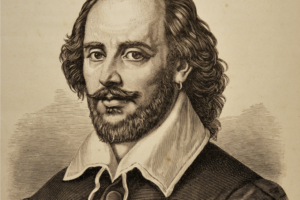
Ranking the most important writers in history is no easy task. We can try by generally assessing the quality of their works. However, ultimately any decision is always going to be influenced by individual preferences and tastes.
Nevertheless, we’ve tried to select these seven writers on the quality of their works, their popularity, the marks they left on the history of literature, and their continuing influence today.
The seven most important writers in history
If you want to know who they were, what they wrote, and when, keep reading.
1. Dante Alighieri / Italy (1265-1321)
Appreciated for his great spirituality, Dante is nicknamed “the Supreme Poet” or “il Sommo Poeta”. However, he was also a prose writer, literary theorist, philosopher, and political thinker. His iconic work was The Divine Comedy (1304-1321), fundamental for the transition from medieval to Renaissance thought. Furthermore, it’s one of the classics of world literature.
The book revolves around Dante’s journey into the three realms of the dead. He has two guides: Virgil, who leads him through the Inferno and Purgatorio, and Beatrice, who introduces him to Paradiso.
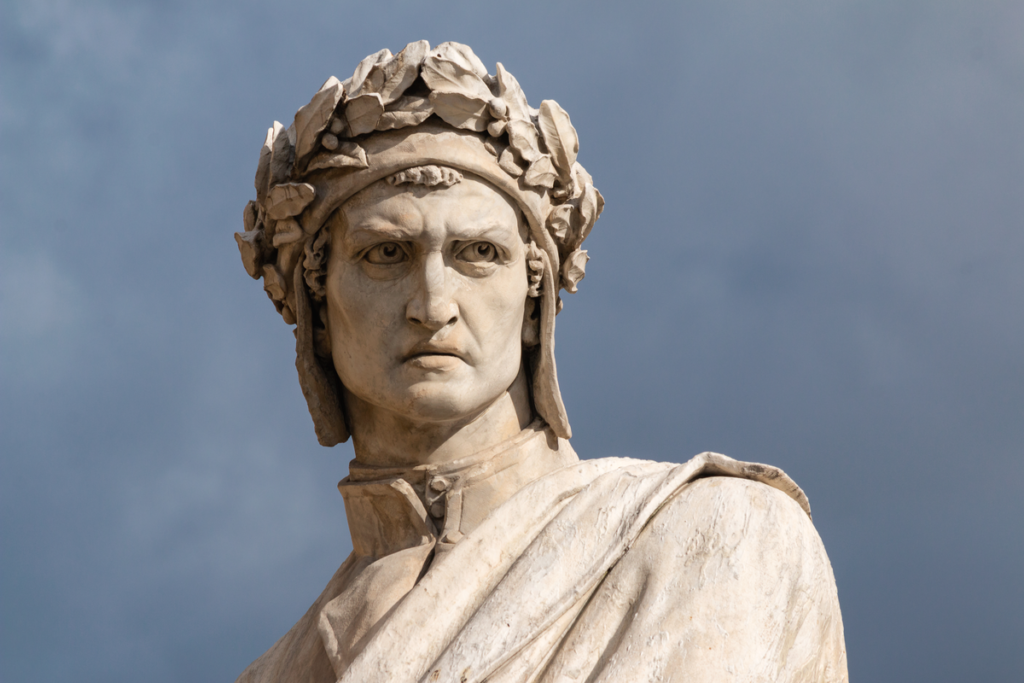
2. William Shakespeare / England (1564-1616)
As Ben Jonson (a contemporary writer to Shakespeare) announced: “He was not of an age but for all time”. He was certainly proved to be right. In fact, The University of Jaén conducted research in 2014 confirming that his influence has reached China, thanks to the playwright Cao Yu.
There’s no doubt that Shakespeare’s recognition was well deserved. In fact, aside from his poems, he wrote fourteen comedies, ten tragedies, and ten other historical dramas. Furthermore, his work remains the object of analysis in many universities, and students often base complete studies on his works.
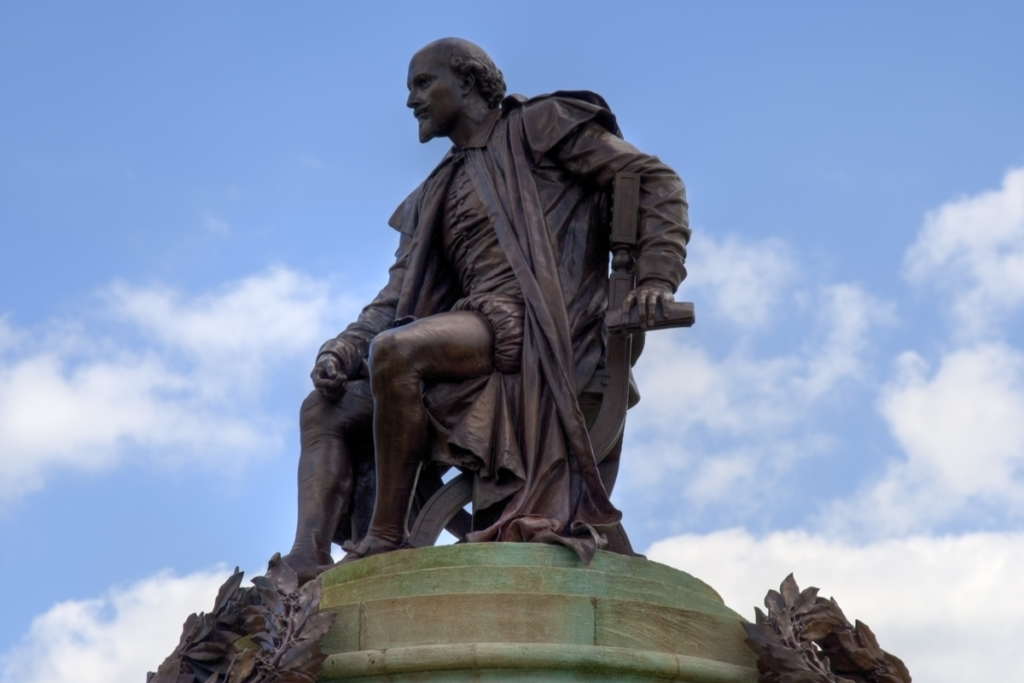
3. Miguel de Cervantes/ Spain (1547-1616)
Also recognized as “the one-armed man of Lepanto“, he gave life to Don Quixote, the most published and translated book in the world after the Bible. Although he also wrote a large number of novels, Cervantes will be forever linked to Don Quixote.
The ingenious gentleman, Don Quixote of La Mancha narrates the adventures of Alonso Quijano, a poor gentleman who, from reading so many chivalric novels, ends up going mad and believes himself to be a knight-errant.
This story was the key that opened the door to metafiction through parody. Furthermore, thanks to Cervantes, the history of Spain remains alive today, as its pages accurately and in detail describe many of the customs of the time.
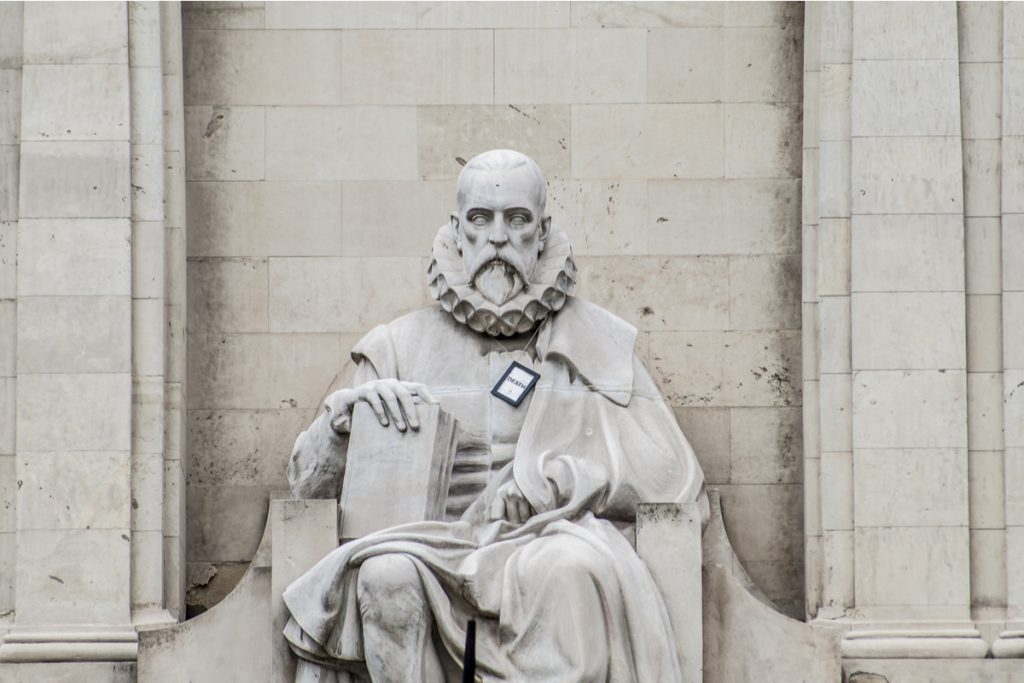
4. Charles Dickens / England (1812-1870)
Considered one of the best English novelists of all time thanks to:
- Oliver Twist (1838).
- A Christmas Carol (1843) .
- Little Dorrit (1857).
These are some of the most emblematic works of Charles Dickens. They demonstrate his struggle on behalf of the most disadvantaged social classes of the Victorian era, his tireless criticism of poverty and social classes, and his enormous empathy for man.
However, for many people, he’s the author who managed to put into words all the emotion and meaning of Christmas with his seasonal classic, A Christmas Carol.
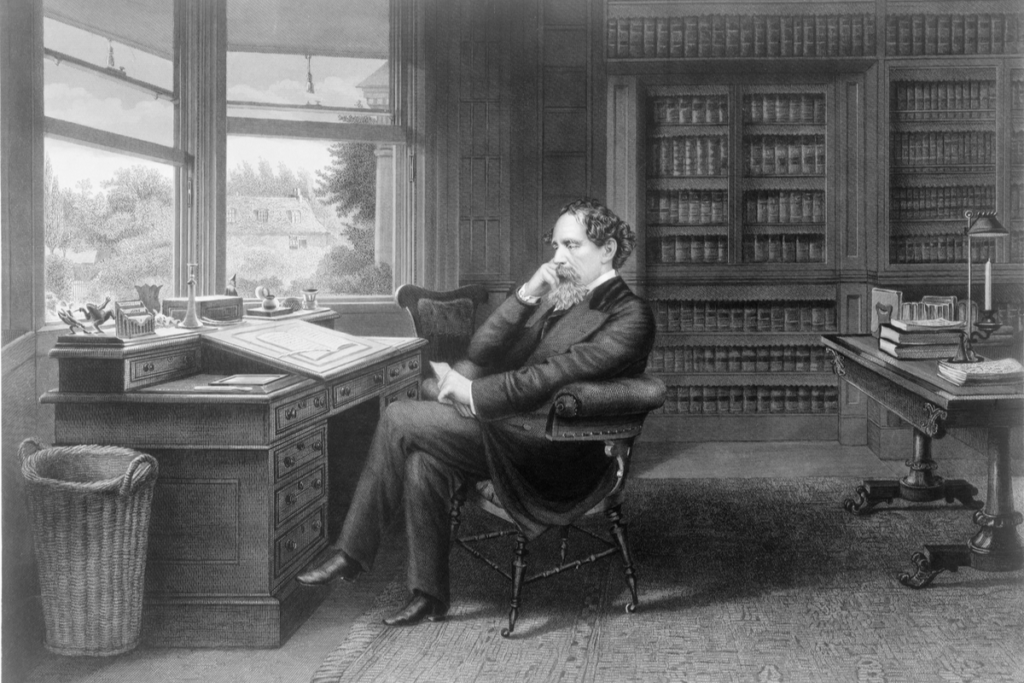
5. Franz Kafka / Czech Republic (1883 -1924)
Kafka’s work is a fusion of fantastic and realistic elements that awakened consciences in a period in which Marx’s theory of alienation was the order of the day. Kafka made people identify with Gregorio Samsa, his main character in The Metamorphosis (1915) who found himself transformed into a huge insect overnight.
As a good expressionist and existentialist, the themes of his literary creations focus on the condition of contemporary man, anguish, guilt, bureaucracy, frustration, and loneliness, among others.
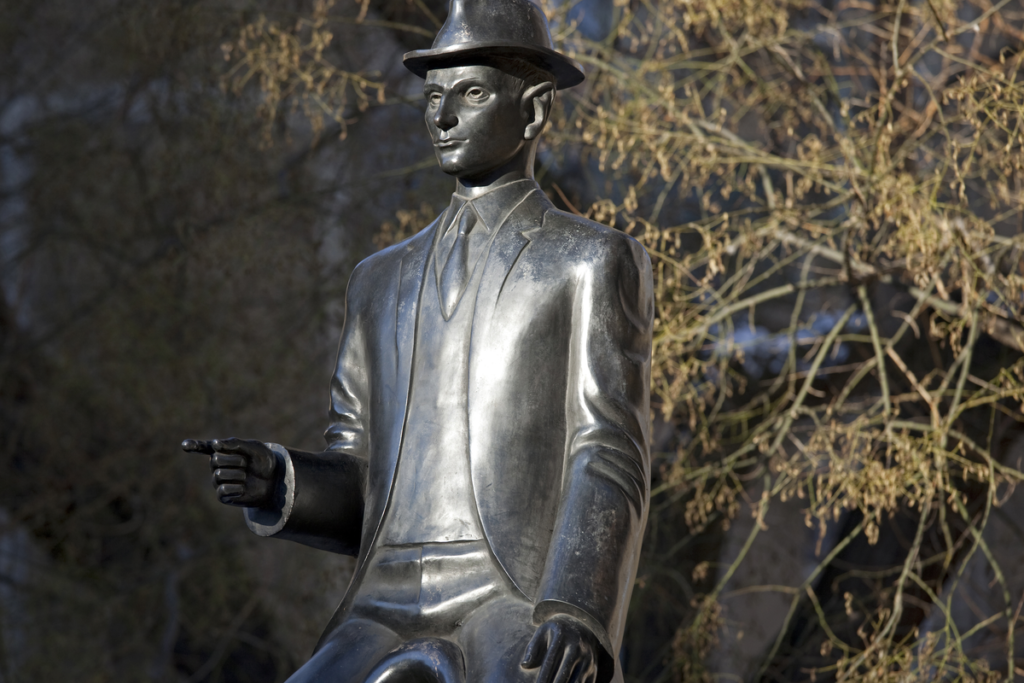
6. William Faulkner / United States (1897-1962)
Awarded the Nobel Prize for Literature, Faulkner was one of the best creators of experimental novels. In addition, he served as a father for many contemporary authors, such as Mario Vargas Llosa, Juan Rulfo, Ana María Matute, and the great Spanish-American existentialist, Juan Carlos Onetti.
His final recognition derived from his fourth novel, The Sound and the Fury (1929), which presents a polyphony of voices with different narrators. It demonstrates Faulkner’s astonishing ability to literarily recreate the features of the human mind, even the most abnormal.
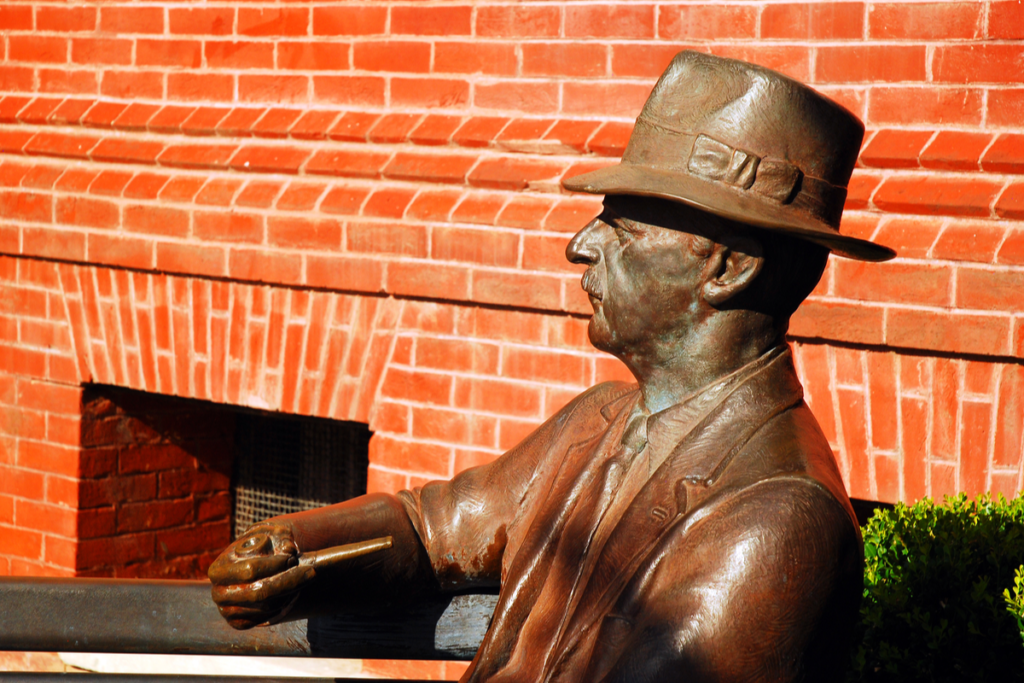
7. Jorge Luis Borges / Argentina (1899 -1986)
Borges remains a key figure, both in Spanish-speaking and universal literature. His works have a strong Argentinian influence with themes as diverse as tango and swords and daggers. Indeed, it seems that Borges was born with a book in his hand.
The Library of Babel (1941) is one of his most famous works. In addition, he wrote more than 50 stories, essays, and poems. They allow readers (whether they be mathematicians, philosophers, chemists or philologists) to enter Borges’s labyrinth, admire life through different eyes, and develop their own theories about it.
Borges suffered from blindness caused by a genetic disease. Perhaps this is what gave him the ability to write about such diverse topics. All of them related to philosophy, existentialism, the universe, etc and he expressed them through rationalism.
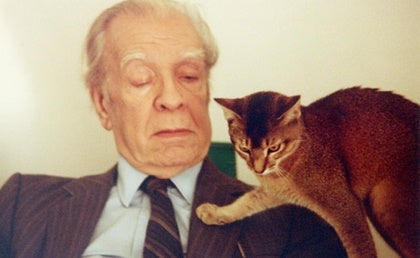
Other great writers
Sadly, we had to restrict our list of the most important writers in history. As a matter of fact, there are many more. Indeed, the truth is that some really groundbreaking authors didn’t make the list. However, we shouldn’t forget them. They include.
- Marcel Proust’s episode of the madeleine.
- The stories of Albert Camus.
- The tales of Edgar Allen Poe.
- James Joyce’s Ulysses.
In addition, there are the writers who, over the course of time and since their deaths have increased in popularity. For example, Emily Dickinson and her intimate poems, Virginia Woolf with A Room of One’s Own, and Mary Shelley who wrote Frankenstein. These are just a few of them.
Finally, we don’t have to go back in time to find esteemed writers such as Philip Roth, Paul Auster, Haruki Murakami, José Saramago, Carlos Ruiz Zafón, or J. K. Rowling, that writer who’s made her mark in the hearts of thousands of young (and not so young) people, with the invention of her alternative universe.
Ranking the most important writers in history is no easy task. We can try by generally assessing the quality of their works. However, ultimately any decision is always going to be influenced by individual preferences and tastes.
Nevertheless, we’ve tried to select these seven writers on the quality of their works, their popularity, the marks they left on the history of literature, and their continuing influence today.
The seven most important writers in history
If you want to know who they were, what they wrote, and when, keep reading.
1. Dante Alighieri / Italy (1265-1321)
Appreciated for his great spirituality, Dante is nicknamed “the Supreme Poet” or “il Sommo Poeta”. However, he was also a prose writer, literary theorist, philosopher, and political thinker. His iconic work was The Divine Comedy (1304-1321), fundamental for the transition from medieval to Renaissance thought. Furthermore, it’s one of the classics of world literature.
The book revolves around Dante’s journey into the three realms of the dead. He has two guides: Virgil, who leads him through the Inferno and Purgatorio, and Beatrice, who introduces him to Paradiso.

2. William Shakespeare / England (1564-1616)
As Ben Jonson (a contemporary writer to Shakespeare) announced: “He was not of an age but for all time”. He was certainly proved to be right. In fact, The University of Jaén conducted research in 2014 confirming that his influence has reached China, thanks to the playwright Cao Yu.
There’s no doubt that Shakespeare’s recognition was well deserved. In fact, aside from his poems, he wrote fourteen comedies, ten tragedies, and ten other historical dramas. Furthermore, his work remains the object of analysis in many universities, and students often base complete studies on his works.

3. Miguel de Cervantes/ Spain (1547-1616)
Also recognized as “the one-armed man of Lepanto“, he gave life to Don Quixote, the most published and translated book in the world after the Bible. Although he also wrote a large number of novels, Cervantes will be forever linked to Don Quixote.
The ingenious gentleman, Don Quixote of La Mancha narrates the adventures of Alonso Quijano, a poor gentleman who, from reading so many chivalric novels, ends up going mad and believes himself to be a knight-errant.
This story was the key that opened the door to metafiction through parody. Furthermore, thanks to Cervantes, the history of Spain remains alive today, as its pages accurately and in detail describe many of the customs of the time.

4. Charles Dickens / England (1812-1870)
Considered one of the best English novelists of all time thanks to:
- Oliver Twist (1838).
- A Christmas Carol (1843) .
- Little Dorrit (1857).
These are some of the most emblematic works of Charles Dickens. They demonstrate his struggle on behalf of the most disadvantaged social classes of the Victorian era, his tireless criticism of poverty and social classes, and his enormous empathy for man.
However, for many people, he’s the author who managed to put into words all the emotion and meaning of Christmas with his seasonal classic, A Christmas Carol.

5. Franz Kafka / Czech Republic (1883 -1924)
Kafka’s work is a fusion of fantastic and realistic elements that awakened consciences in a period in which Marx’s theory of alienation was the order of the day. Kafka made people identify with Gregorio Samsa, his main character in The Metamorphosis (1915) who found himself transformed into a huge insect overnight.
As a good expressionist and existentialist, the themes of his literary creations focus on the condition of contemporary man, anguish, guilt, bureaucracy, frustration, and loneliness, among others.

6. William Faulkner / United States (1897-1962)
Awarded the Nobel Prize for Literature, Faulkner was one of the best creators of experimental novels. In addition, he served as a father for many contemporary authors, such as Mario Vargas Llosa, Juan Rulfo, Ana María Matute, and the great Spanish-American existentialist, Juan Carlos Onetti.
His final recognition derived from his fourth novel, The Sound and the Fury (1929), which presents a polyphony of voices with different narrators. It demonstrates Faulkner’s astonishing ability to literarily recreate the features of the human mind, even the most abnormal.

7. Jorge Luis Borges / Argentina (1899 -1986)
Borges remains a key figure, both in Spanish-speaking and universal literature. His works have a strong Argentinian influence with themes as diverse as tango and swords and daggers. Indeed, it seems that Borges was born with a book in his hand.
The Library of Babel (1941) is one of his most famous works. In addition, he wrote more than 50 stories, essays, and poems. They allow readers (whether they be mathematicians, philosophers, chemists or philologists) to enter Borges’s labyrinth, admire life through different eyes, and develop their own theories about it.
Borges suffered from blindness caused by a genetic disease. Perhaps this is what gave him the ability to write about such diverse topics. All of them related to philosophy, existentialism, the universe, etc and he expressed them through rationalism.

Other great writers
Sadly, we had to restrict our list of the most important writers in history. As a matter of fact, there are many more. Indeed, the truth is that some really groundbreaking authors didn’t make the list. However, we shouldn’t forget them. They include.
- Marcel Proust’s episode of the madeleine.
- The stories of Albert Camus.
- The tales of Edgar Allen Poe.
- James Joyce’s Ulysses.
In addition, there are the writers who, over the course of time and since their deaths have increased in popularity. For example, Emily Dickinson and her intimate poems, Virginia Woolf with A Room of One’s Own, and Mary Shelley who wrote Frankenstein. These are just a few of them.
Finally, we don’t have to go back in time to find esteemed writers such as Philip Roth, Paul Auster, Haruki Murakami, José Saramago, Carlos Ruiz Zafón, or J. K. Rowling, that writer who’s made her mark in the hearts of thousands of young (and not so young) people, with the invention of her alternative universe.
All cited sources were thoroughly reviewed by our team to ensure their quality, reliability, currency, and validity. The bibliography of this article was considered reliable and of academic or scientific accuracy.
- de Tudela ROP. DON QUIJOTE EN HISPANOAMÉRICA: UTOPÍA, METALITERATURA O PARODIA. APROXIMACIONES [Internet]. Cervantes.es. [citado 15 de septiembre de 2021]. Disponible en: https://cvc.cervantes.es/ensenanza/biblioteca_ele/aepe/pdf/congreso_51/congreso_51_06.pdf
- Intecca I, Garcia RS. Grandes escritores y escritoras en la historia. 2021 [citado 15 de septiembre de 2021]; Disponible en: http://contenidosdigitales.uned.es/fez/view/intecca:GICCU-5e9d9020314e9d0f1a3daf6a
- Romero S. Los escritores más famosos de todos los tiempos [Internet]. MuyInteresante.es. 2020 [citado 15 de septiembre de 2021]. Disponible en: https://www.muyinteresante.es/cultura/arte-cultura/fotos/los-escritores-mas-famosos-de-todos-los-tiempos/28
- Siyi Z. Hamlet de Shakespeare y sus influencias en China. Jaén: Universidad de Jaén; 2014.
- Velázquez AP. Los 10 autores más trascendentales de la historia [Internet]. Uachatec.xyz. 2021 [citado 15 de septiembre de 2021]. Disponible en: https://listas.uachatec.xyz/los-10-autores-mas-trascendentales-de-la-historia/
This text is provided for informational purposes only and does not replace consultation with a professional. If in doubt, consult your specialist.







